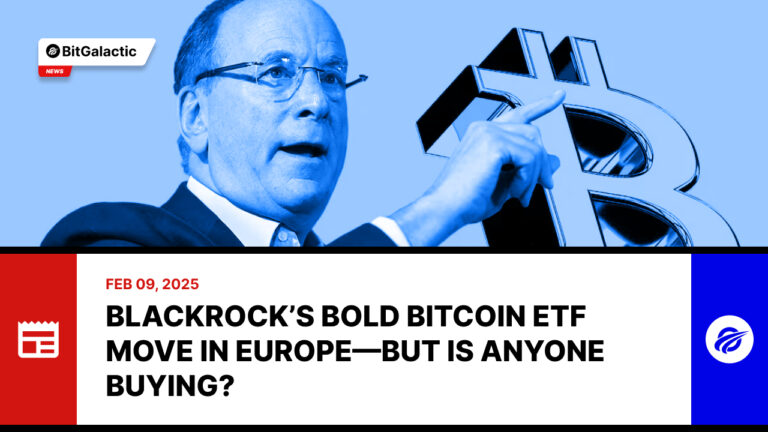BlackRock’s Bold Bitcoin ETF Move in Europe—But Is Anyone Buying?
BlackRock, the world’s largest asset manager with a staggering $12 trillion under management, is setting its sights on Europe for its next big Bitcoin exchange-traded fund (ETF) expansion. Fresh off its massive success in the U.S., where its IBIT Bitcoin ETF has attracted over $56 billion in investments, BlackRock is now looking to replicate that momentum across the Atlantic, as reported by Bloomberg. However, there’s one looming question: Will European investors bite?
Europe’s Chilly Reception to Bitcoin ETFs
Unlike in the U.S., where Bitcoin ETFs have exploded in popularity since their debut in early 2024, European investors have had access to similar products for years. Yet, adoption has been sluggish.
According to Bloomberg ETF analyst Eric Balchunas, Europe barely registers on the global leaderboard of Bitcoin ETFs. “Europeans [are] much less into ‘hot sauce’ than US and certain Asian countries,” he noted on X, suggesting that European investors are generally more conservative in their risk appetite.
The numbers back this up. Data from ETF Screener shows that the top five Bitcoin funds in Europe collectively manage around $5.3 billion. Meanwhile, the top five in the U.S. are worth a whopping $107 billion—20 times more than their European counterparts.
Why Aren’t Europeans Diving into Bitcoin ETFs?
Several structural and cultural factors are at play.
- Higher Savings Rates, Lower Risk Appetite
The average household savings rate in the Eurozone was around 15% in 2024, significantly higher than the 4% recorded in the U.S., according to official data. This suggests that European investors prefer preserving capital rather than chasing high-risk, high-reward investments like Bitcoin ETFs. - Retirement Systems That Don’t Rely on Market Gains
Unlike the U.S., where many individuals manage their own retirement savings through investment funds, European pension systems are more structured, reducing the need for individuals to take on risky market bets. As Balchunas pointed out, “We’re gonna get no help from the government [in the US]. So we’ve all been pushed to learn with funds, to shop for funds, to know what costs are.” - Regulatory and Institutional Barriers
European financial markets operate under stricter regulatory frameworks, making it harder for new financial products—especially in the crypto space—to gain widespread traction.
BitGalactic’s Take: Can BlackRock Crack the European Market?
From BitGalactic’s perspective, BlackRock’s move is a bold but highly uncertain bet. While the firm has a proven track record of driving institutional investment, the European market remains a tough nut to crack. The cultural and structural differences in investment behavior mean that simply introducing a Bitcoin ETF might not be enough to shift European sentiment toward crypto.
However, if BlackRock can leverage its brand strength and tap into emerging trends—such as increasing corporate adoption of Bitcoin or changing attitudes among younger investors—it could carve out a niche. The key will be whether BlackRock can position Bitcoin ETFs not just as a speculative asset but as a legitimate portfolio diversification tool for European investors.
For now, BlackRock’s European Bitcoin ETF ambitions remain a high-stakes gamble in a market that has yet to show real appetite for crypto investment on a large scale. Will they succeed? Only time will tell.
Share this post


